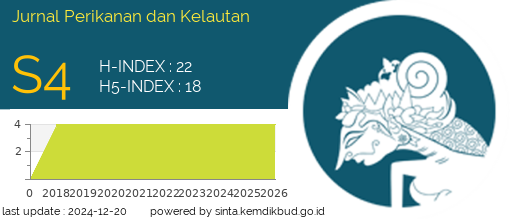Coastal Community Participation in the Development of Tourism Village in Bokor Village, Rangsang Barat District, Meranti Islands Regency, Riau Province
DOI:
https://doi.org/10.31258/Keywords:
Community Participation, Tourism Village, BokorAbstract
Community participation in the development of tourist villages is an obligation by remembering that marine potential is shared property and most importantly with participation, the community will be more aware of its marine potential and must continue to protect it in order to provide life for the community. This study aims to describe and determine community involvement in the development of tourist villages, using qualitative description with data sources obtained from the words and actions of informants, the rest is additional data such as documents with purposive techniques. The data obtained were collected through observation, interviews, in-depth, and documentation. Data analysis was carried out using qualitative methods through three stages, namely the data reduction stage, data presentation, and drawing conclusions. The results of the study indicate that there is community participation in the form of thoughts, energy, and money or property carried out by the community in the development of tourist villages, as well as the level of community participation carried out such as providing information, consulting, joint decision making, acting together, and providing support. So from this study it can be concluded that the participation of coastal communities in the development of tourist villages in Bokor Village, Rangsang Barat District, Meranti Islands Regency, Riau Province is an activity carried out by the community through community participation in the form of thoughts, energy, money or property in deliberation and mutual cooperation to improve the quality of the village as an effort to develop a tourist village.
Downloads
References
Adi, I.R. (2007). Perencanaan partisipatoris berbasis asset komunitas : dari pemikiran menuju penerapan. Depok : fisip ui press.
Adisasmita. (2006). Membangun Desa Partisipatif. Yogyakarta: Graha Ilmu.
Apriyanti, R. (2014). Pengembangan Kawasan Wisata Air di Pulau Tidung Kepulauan Seribu. Universitas Gunadarma, Depok.
Hadiwijoyo, S.S. (2012). Perencanaan Pariwisata Perdesaan Berbasis Masyarakat ; Sebuah Pendekatan Konsep. Yogyakarta: Graha Ilmu.
Marpaung. (2010). Pengetahuan Kepariwisataan. Bandung, Alfabeta.
Muljadi. (2009). Kepariwisataan dan Perjalanan. Jakarta. Penerbit: Pt Raja Grafindo Persada.
Nuryanti, W. (2008). Concept Perspective, and Challenges, Makalah Bagian dari Laporan Konferensi Internasional Mengenai Pariwisata Budaya. Yogyakarta: Gadjah Mada University Press
Paturusi, S.A. (2001). Perencanaan Tata Ruang Kawasan Pariwisata, Materi Kuliah Perencanaan Kawasan Pariwisata. Program Pasca Sarjana Universitas Udayana Denpasar, Bali.
Pitanam, I.G., & Gayatri. (2005). Sosiologi Pariwisata. Yogyakarta: Angkasa.
Rahmat, P.S.2009. Qualitative research. Equilibrium. 5(9): 1-8.
Theresia, A. (2015). Pembangunan Berbasis Masyarakat, Bandung: Alfabeta.
Wicaksono, H.W. (2011). Partisipasi Masyarakat dalam Tahap Perencanaan, Pelaksanaan, dan Pemanfaatan Pengembangan Objek Wisata Museum Gunung Merapi Dusun Banteng, Kelurahan Hargobinangun, Kabupaten Sleman, Daerah Istimewa Yogyakarta. Skripsi. Surakarta: Fakultas Ilmu Sosial dan Politik. Universitas Sebelas Maret. Surakarta.







